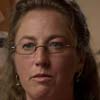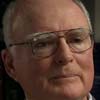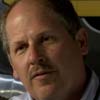If the public's not engaged, then Puget Sound won't recover; Chesapeake Bay will fail. This is the key to saving America's waterways.
- RELATED LINK
- I Want to Get Involved
Profiles of some citizen activists, and organizations in your area. - William Ruckelshaus
- Chris Gregoire
- Robert F. Kennedy Jr.
- B.J. Cummings
- Steve Tochko
- Chris Miller
William Ruckelshaus
EPA administrator 1970-73, 1983-85
When we started, the primary focus of the Clean Water Act and the Clean Air Act back in the '60s and '70s was public health, and that really gets people's attention. If air pollution is so bad health is being affected, or the same [with] water pollution, you can get their support for all kinds of expenditures. And when they don't see any economic impact on themselves -- [it's] on some big corporation to clean up or some big city to clean up the sewage -- they'll support it overwhelmingly.
Now we're in a much different set of conditions. But essentially, those big point sources in the country are under social control. ... What isn't under social control is everything else we humans do in pursuing our daily lives, whether driving big cars in suburban areas, managing farms, living in cities.
The way we do it is collectively having a bad impact on the environment, so we've got to understand what that collective impact is and make adjustments in the way we live so that we don't have that effect on the environment and we start restoring this natural capital.
Can we do that? I don't know, but I think [we can].
What is going to mobilize and energize and convince people?
I think what will do it is the vision of what living in a really healthy ecosystem is all about, how it affects them, how it affects their health and how it affects their pride and how it affects their sense of place and how it affects their economic well-being. And if we can make that case with enough persuasiveness, then I think you will be able to gain and maintain public support for what we are trying to do. ...
... The dominant message, it seems to me, has changed from we are going to enforce [the law] … to now we've got to persuade people. ...
... Regulation only works, enforcement of laws only works, if there is public support for them. ...
Chris Gregoire
Governor, Washington State

There's a clear disconnect between what the policy-makers and the scientists know and what the average citizen in and around Puget Sound or other estuaries around the nation know and understand. So the policy-makers and scientists want to do new regulations and new rules and so on, ... and yet they don't have the buy-in of the people who live around these estuaries in order to make it happen. And if you don't have their buy-in, I think you're not going to succeed.
So shame on us for not being able to translate the problem in a way in which everybody understands it, and not only understands it but gets motivated to understand it's their job and the whole water body is at threat, and it's their job to step up and take responsibility to get the job done. ...
Can you get the job done as a policy-maker if the public is not engaged?
No. If the public is not engaged, in Puget Sound, for example, we will fail. I have no confidence whatsoever we can get the job done unless and until everybody steps up, accepts responsibility and becomes part of the solution. ...
So how tough a message do you as a leader have to deliver to the public to help wake them up?
Well, in my State of the State address a year ago, I made it very clear to the public at large that we thought Puget Sound was flushing out into the ocean, and therefore it would always be cleaned; there would be new clean water coming in. It's a bathtub; it's a bathtub of toxicity. Do you want your kid in that bathtub? I don't think so. So let's get going. Let's understand what's at stake here, and let's get motivated.
So it's my job to put [the problem] in terms like that, or to say to them, "It looks great on the surface, but go an inch beneath that, and you can see it's dead and dying in far too many places in and around Puget Sound." It's that way of communicating with the public that allows them then to get engaged and then to learn in much more detail what the scientists and the policy-makers have learned themselves.
Robert F. Kennedy Jr.
Chairman, Waterkeepers Alliance

People say to me, what's the most important environmental law? And I say two laws. One is campaign finance reform. Get the corporate money out of government. And number two: media reform, to bring back the Fairness Doctrine and force the public airwaves to be used to promote democracy and the public interest. ...
The public, if they knew what was going on, would not tolerate this. ... We know more about Lindsay Lohan than we do about the chicken crap that has destroyed the Chesapeake Bay, and that's not right. We should know more [about] the chicken crap than Lindsay Lohan. It's more important to our democracy, to our quality of life, to the health of our children, to the quality of our communities.
B.J. Cummings
Duwamish River Cleanup Coalition

I think that this effort has been successful because this community has been uncompromising in speaking up for itself and in insisting that people listen. Now, you could say that maybe a lot of groups around the country try to do that. Here, when South Park speaks, the local environmental community, the tribe here, all of the resources that we all can bring to bear all back up the local community in what it's trying to do. We speak with one voice.
We draw from a lot of different bases of support, and we are able to represent businesses, neighbors, environmentalists, etc., and all come together to make sure that we're backing up the needs of folks who live here. ... I think the effectiveness of this community has a lot to do with seeing their environmental struggle as a social struggle, a justice struggle, a health struggle and a rights struggle, fully bringing all of those influences to bear.
And is it a confrontational strategy that you pursue, or is it a reason strategy built on technical expertise, or is it just simply wearing down the other side and not going away?
Stubbornness certainly has a lot to do with it. I think we do bring a very reasoned approach. We also get confrontational when we need to. But we've built up a lot of what I would call partnerships with the agencies, and yet we aren't co-opted by those partnerships, and I think that that's an important point.
Steve Tochko
Boeing Environmental Officer
... Do you see [Duwamish River Cleanup Coalition Director] B.J. Cummings and local activists like that as helpful, as a nuisance?
I think it's a vital part. ... It's very important to have them factor into what we do at different sites. And it's good to see a very vibrant community.
The issue is there needs to be a balance. And I think what we are seeing in this area is that the EPA is giving a lot of preference to the public community. ...
It's also important to have the industrial users, the marine applications, to hear their point of view, and I think we have not heard that as much till right now.
It's important to hear what the people in the state of Washington want. The people in the state of Washington are paying a large part of the cleanup of the Duwamish. It's being paid for by taxes. ...
And the question we all have to ask ourselves is, are we spending the right money? Is this where we should be spending our money? Is it important to have a river that's very clean, while other parts of Puget Sound might not be getting that attention? It's a decision that I think [the Department of] Ecology and EPA need to look at. ...
Chris Miller
President, Piedmont Environmental Council

What are the issues that moved people out here? Are people thinking about "Save the Chesapeake Bay," or are they thinking about something else?
The 80 percent that move public policy are concerned about what's happening in their community. They're concerned about traffic; they're concerned about overcrowding of schools; they're concerned about the forest next door that's getting cut down to bring in yet more houses. They're worried about the impact on their taxes.
And they're also concerned about the environment in general, and they will certainly support environmental programs that benefit them and which benefit the bay. But it's a secondary issue after you deal with the more immediate concerns in their communities.
So you're talking about local quality of life, local taxes, local traffic. That's what moves people.
That's what gets them to do something. That's what gets them to call their local government official. That's what gets them to show up at a rally. That's what gets them to make an investment in local politics. And it's an amazing thing. ...
What we find is that once people get involved in local issues, they become very interested in the broader environmental impacts of local land-use decisions. They become passionate about protecting streams in their neighborhood, ... but it's always after they get involved with the basic land-use issues. ...
... Listening to you, the nuts and bolts of this thing sounds as though they have to be fought out on a local basis, county by county.
I think the conservation movement has to move away from wholesale ideas to retailing what we're talking about. We've known that the bay and the water quality has been under threat since the turn of the century, ... but we've kept talking about the solution in sort of a generalized way: We've got to set standards so things get better.
The real challenge is learning how to retail ideas. We need to look at Wal-Mart and McDonald's and Starbucks, who have figured out how to look at a community and find the right location to get the most possible participation in buying a cup of coffee or buying a hamburger or buying whatever you get at Wal-Mart. The environmental community has to realize that the same is true of all the decisions that people make that affect environmental quality. We have to get better at being at the right place at the right time, with the right choice, so that they can make the right decision.
Timing's important.
Timing's incredibly important, and that's why the Internet has made civic engagement so effective. You can get an action alert out on a subject in a matter of minutes, a matter of hours, and you can direct people to exactly the right decision maker, and they can participate within a matter of minutes, within a matter of hours. ... That's been a fundamental shift in the way that decisions are made that's really only occurred in the last decade.
A lot of people, including people in the environmental movement, are sort of discouraged about where things stand and what's happened. You sound like an optimist.
I am an optimist. The problem we have in Virginia right now is that we can't move fast enough to accept the donation of conservation easements by people saying, "We don't want to develop our land; we want to preserve it." In the last five years, nearly 100,000 acres of land has been protected, which in Virginia, for the first time, is faster than the rate at which it's being developed. ... We've got feedback from farmers that too many people want to buy directly from their farms, and they're not sure they can produce enough.
I think we're on the front wave of a whole new way of looking at land and land use and land conservation, and, surprisingly, Virginia's in the lead.

